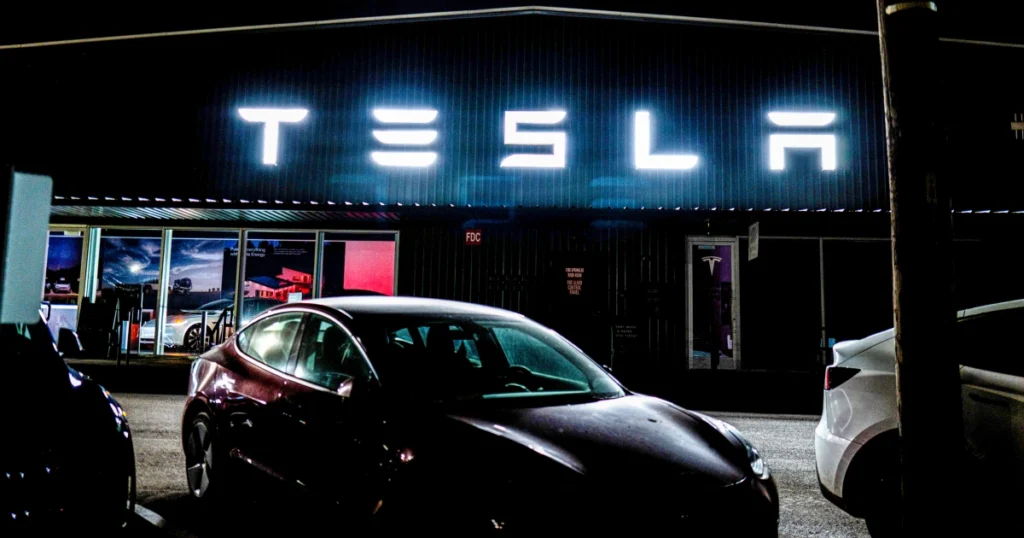Florida Jury Orders Tesla to Pay $243 Million: A Florida jury found Tesla 33% liable for a fatal 2019 Autopilot crash, awarding $243 million in damages. This verdict raises questions about autonomous driving safety and Tesla’s legal future.
Tesla, Autopilot crash, lawsuit, autonomous driving, safety, liability
Tesla Hit with $243 Million Verdict in Fatal Autopilot Crash
A Florida jury has delivered a significant blow to Tesla, ordering the electric vehicle giant to pay $243 million in damages related to a fatal 2019 crash involving its Autopilot system. The decision, reached in a Miami federal court, marks a rare instance of legal accountability for Tesla concerning accidents linked to its semi-autonomous driving technology and raises critical questions about the future of autonomous driving.

The case stemmed from a tragic collision where a Tesla Model S, driven by George McGee and operating on Autopilot, ran a stop sign and red light, colliding with a parked SUV. The impact resulted in the death of Naibel Benavides Leon and severe injuries to her companion, Dillon Angulo. While the jury assigned 67% of the blame to McGee, who was distracted while retrieving a dropped phone, Tesla was deemed 33% responsible, translating to approximately $42.6 million of the $129 million in compensatory damages. An additional $200 million was awarded in punitive damages, bringing the total to $243 million.
Autopilot’s Role Under Scrutiny
Florida Jury Orders Tesla to Pay $243 Million: Central to the case was the functionality and limitations of Tesla’s Autopilot system. Plaintiffs’ attorney Brett Schreiber argued that Tesla misleadingly marketed Autopilot as superior to human drivers, despite designing it for controlled-access highways and not restricting its use in other environments. The lack of alerts prior to the crash, despite McGee’s evident distraction, further fueled the arguments against Tesla.
Expert witness Philip Koopman, an engineering specialist, testified that the jury’s verdict pointed to a defect in Tesla’s Autopilot software. The fact that Tesla was found partially liable despite the driver’s admitted negligence suggests the jury believed the system itself contributed to the accident.
Tesla’s Defense and Appeal
Tesla vehemently denies any wrongdoing, maintaining that McGee bears sole responsibility for the accident. The company argues that no vehicle at the time, nor any currently available, could have prevented the collision. They claim the lawsuit is a result of misrepresentation by plaintiffs’ attorneys seeking to blame the vehicle rather than the driver’s actions. Tesla has announced plans to appeal the verdict, warning that the decision could stifle innovation in automotive safety, particularly in the development of autonomous driving and robotaxi services.
Implications for the Future of Autonomous Driving
This landmark ruling has far-reaching implications for Tesla and the broader automotive industry. The substantial financial penalty could encourage further litigation against Tesla’s Autopilot, which has faced numerous legal challenges but rarely reached this stage. Legal experts predict that this outcome may significantly increase the financial stakes of future settlements in similar cases.
The verdict also adds pressure on Tesla’s CEO, Elon Musk, and the company’s strategic direction. As Tesla shifts its focus from electric vehicle sales towards advanced robotics and AI, including plans for robotaxi fleets, this legal setback introduces a new layer of complexity and risk. With Tesla’s stock already down 25% this year, the verdict further complicates the company’s valuation and future prospects.
A Pivotal Moment for Autonomous Vehicle Safety
This case highlights the ongoing debate surrounding the safety and deployment of semi-autonomous driving systems. As the technology advances, the legal and ethical considerations become increasingly complex. The Florida jury’s decision underscores the urgent need for rigorous safety testing, transparent communication about the capabilities and limitations of these systems, and a clear understanding of the shared responsibility between driver and vehicle in accidents involving autonomous driving technology. The future of autonomous driving hinges on addressing these critical issues.